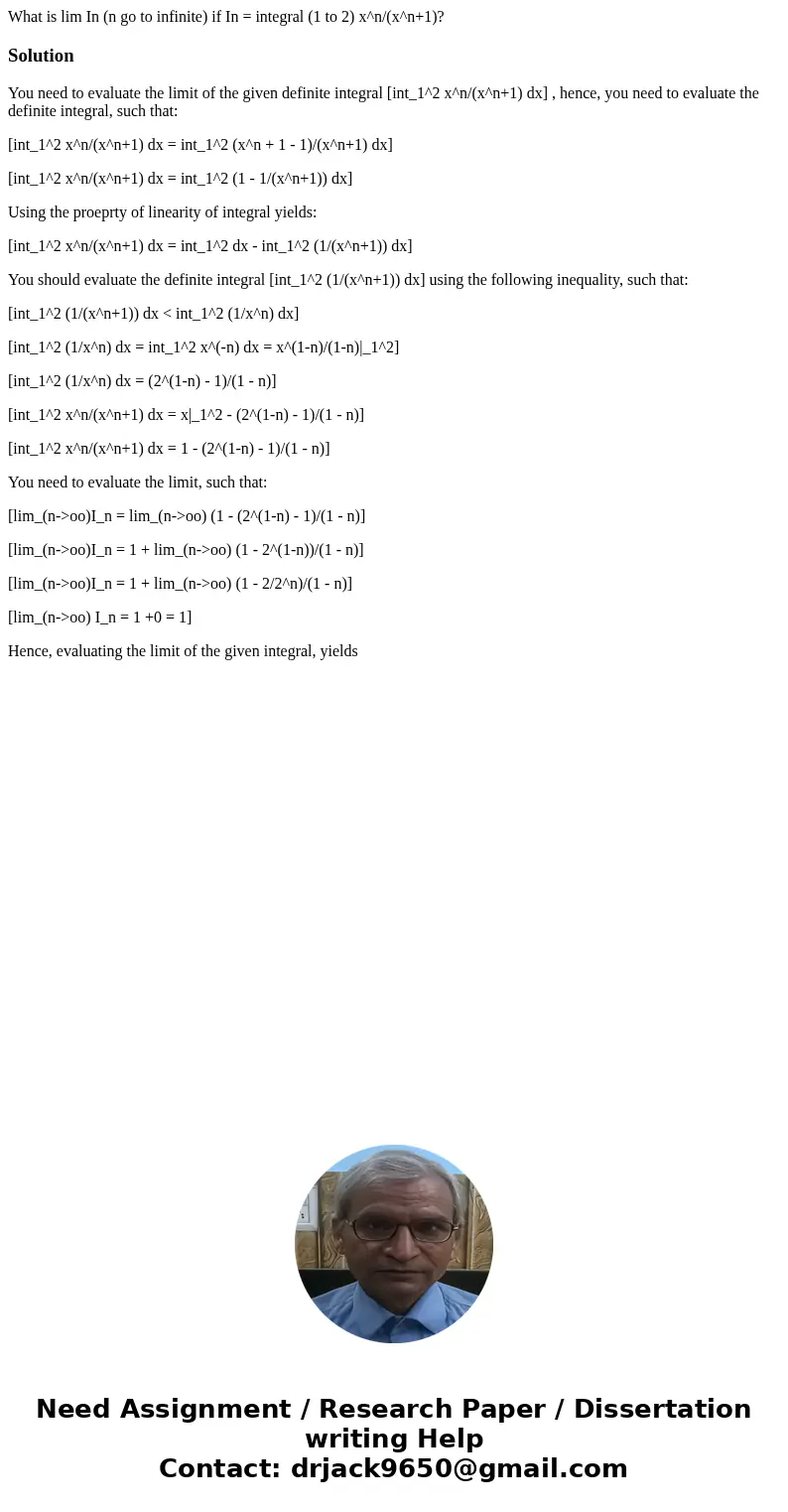What is lim In n go to infinite if In integral 1 to 2 xnxn1
What is lim In (n go to infinite) if In = integral (1 to 2) x^n/(x^n+1)?
Solution
You need to evaluate the limit of the given definite integral [int_1^2 x^n/(x^n+1) dx] , hence, you need to evaluate the definite integral, such that:
[int_1^2 x^n/(x^n+1) dx = int_1^2 (x^n + 1 - 1)/(x^n+1) dx]
[int_1^2 x^n/(x^n+1) dx = int_1^2 (1 - 1/(x^n+1)) dx]
Using the proeprty of linearity of integral yields:
[int_1^2 x^n/(x^n+1) dx = int_1^2 dx - int_1^2 (1/(x^n+1)) dx]
You should evaluate the definite integral [int_1^2 (1/(x^n+1)) dx] using the following inequality, such that:
[int_1^2 (1/(x^n+1)) dx < int_1^2 (1/x^n) dx]
[int_1^2 (1/x^n) dx = int_1^2 x^(-n) dx = x^(1-n)/(1-n)|_1^2]
[int_1^2 (1/x^n) dx = (2^(1-n) - 1)/(1 - n)]
[int_1^2 x^n/(x^n+1) dx = x|_1^2 - (2^(1-n) - 1)/(1 - n)]
[int_1^2 x^n/(x^n+1) dx = 1 - (2^(1-n) - 1)/(1 - n)]
You need to evaluate the limit, such that:
[lim_(n->oo)I_n = lim_(n->oo) (1 - (2^(1-n) - 1)/(1 - n)]
[lim_(n->oo)I_n = 1 + lim_(n->oo) (1 - 2^(1-n))/(1 - n)]
[lim_(n->oo)I_n = 1 + lim_(n->oo) (1 - 2/2^n)/(1 - n)]
[lim_(n->oo) I_n = 1 +0 = 1]
Hence, evaluating the limit of the given integral, yields

 Homework Sourse
Homework Sourse